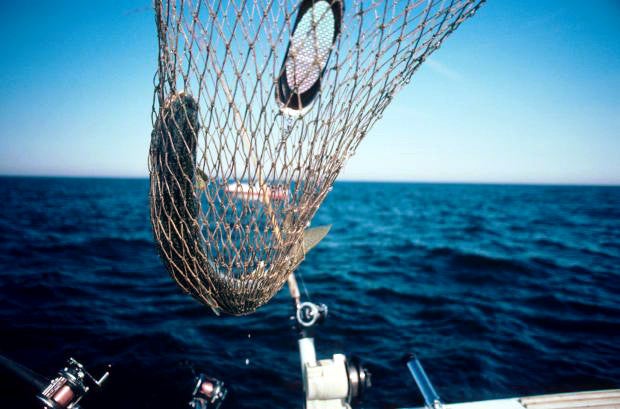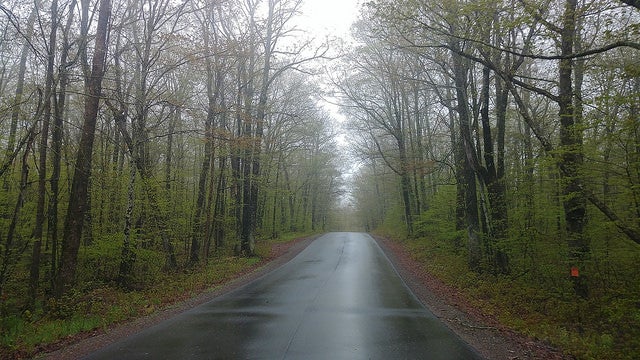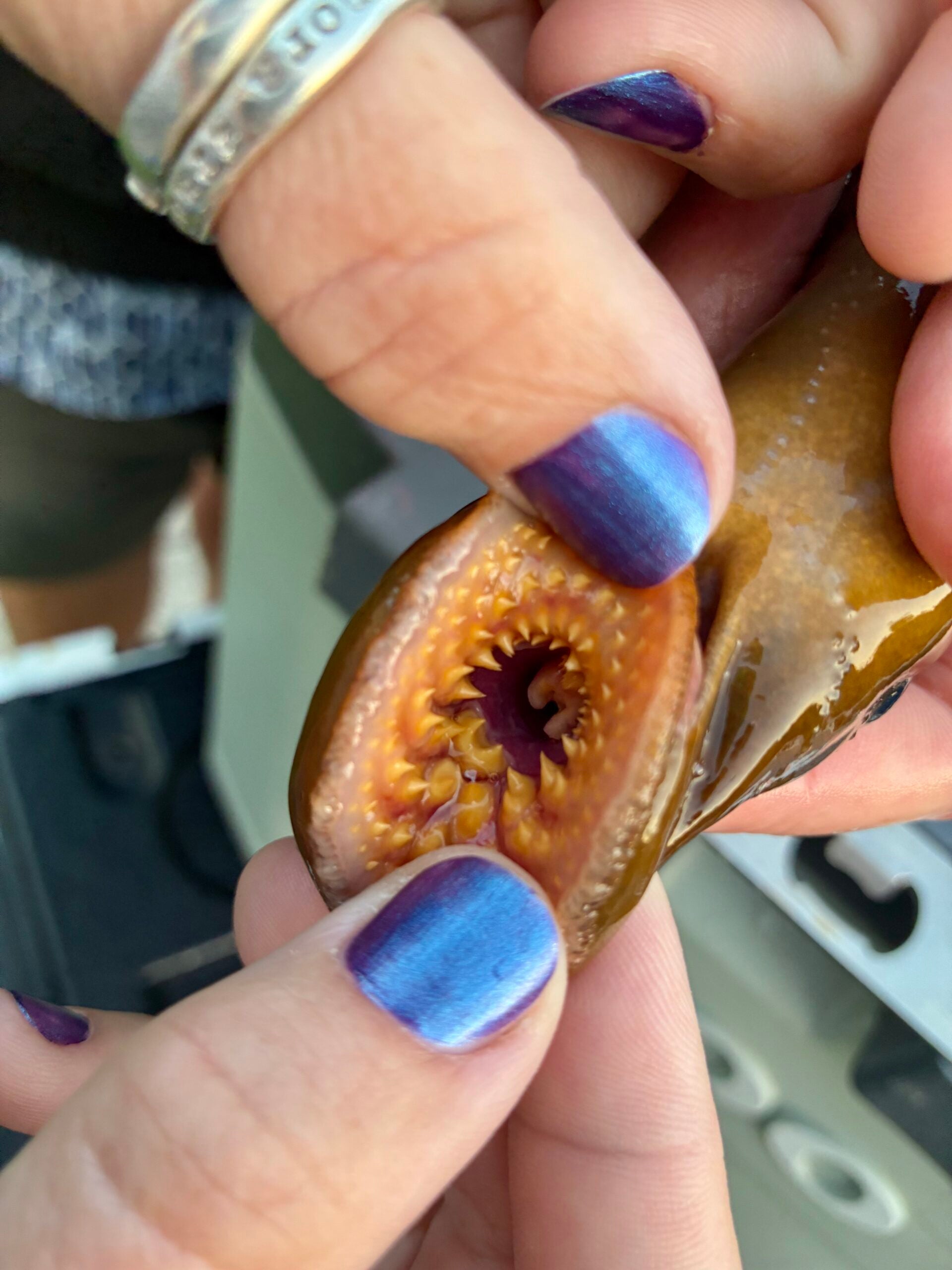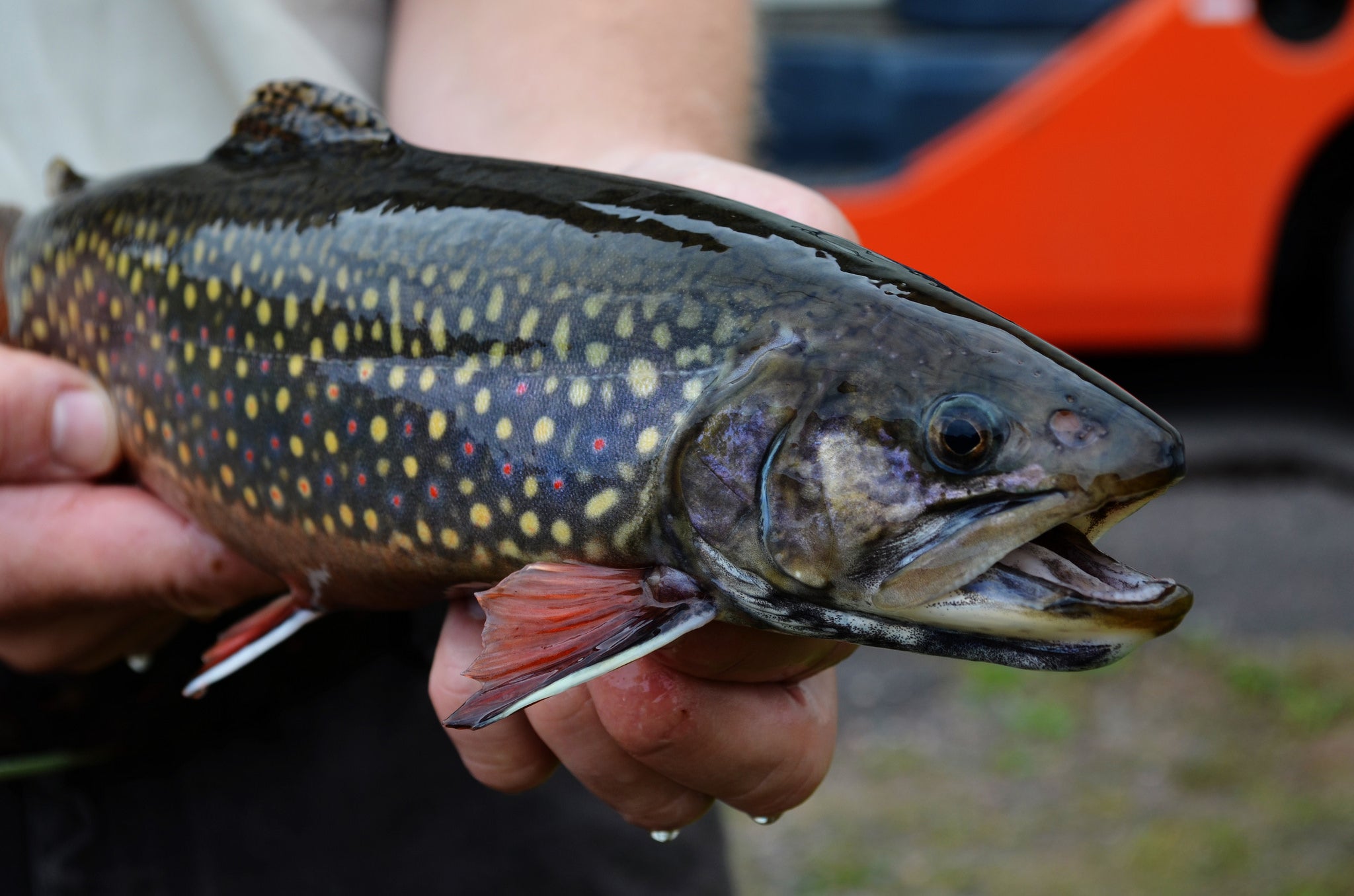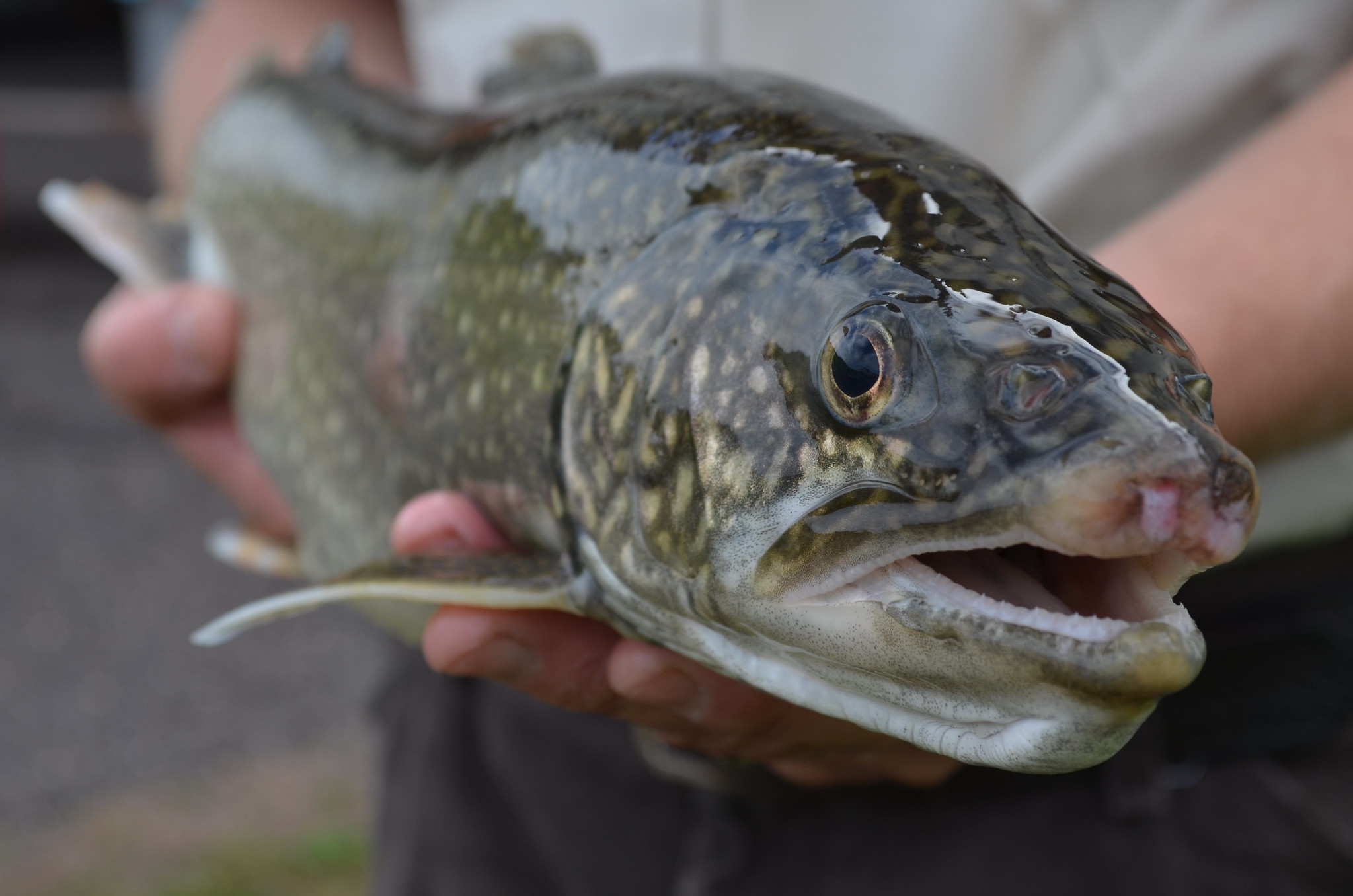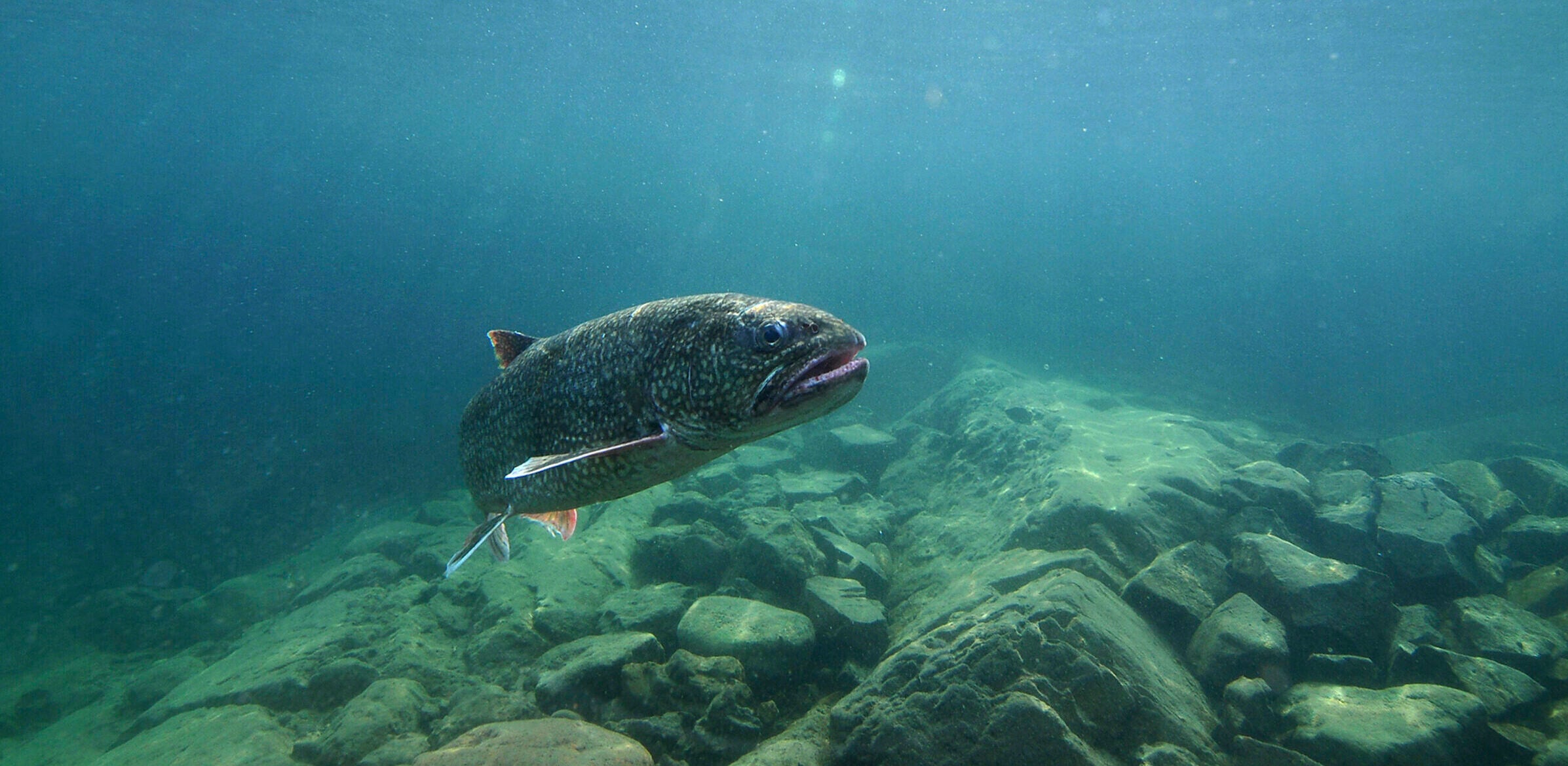Some sports fishermen on Lake Superior won’t be able to hook another lake trout after this weekend. The season is ending early around the Apostle Islands region because anglers have already reached their quota of 9,800 fish.
The Wisconsin Department of Natural Resources has limited anglers’ catch there in recent years to help the population rebound. Lake trout numbers have been declining for roughly the last decade, said Brad Ray, senior fisheries biologist for Lake Superior.
Ray said sport fishermen were quickly approaching 7,350 fish this summer, which was the trigger for officials to close the season early.
News with a little more humanity
WPR’s “Wisconsin Today” newsletter keeps you connected to the state you love without feeling overwhelmed. No paywall. No agenda. No corporate filter.
“At the end of July, we were at 7,335, so we collected more data and started looking at it, realizing that we were quickly going to go over if we did not close it before the end of the month,” Ray said.
The recreational season for lake trout began in December and typically runs through Sept. 30.
The DNR, Red Cliff and Bad River tribes have set a safe allowable harvest of around 56,000 fish for the season under the existing Lake Superior Fishing Agreement, which is an extension of an expired 10-year agreement.
The state and two tribes split the allowable harvest 50-50 under their existing agreement. Sports anglers receive two-thirds of the state’s share, Ray said.
Al House, president of the Apostle Islands Sport Fisherman’s Association, said their members are frustrated.
“I think what we have to take a look at is No. 1, conservation of the resource, which would be to protect the lake trout stocks,” he said. “No. 2, how to make sure that everyone gets what they need to prosper with the lake.”
House said they strongly feel tribal treaty rights should be respected and honored. But, he noted sports anglers’ take has been “severely cut” under the quota. House said the early closure to the season will hurt the regional economy.
“I think we have to work hard to find a way that in coming years that we avoid these types of closures. You’ve got the motels. You’ve got the bait stores. You’ve got the gas stations. A lot of different people benefit from our sport fishermen visiting this area,” he said.
House said one option may be to reduce bag limits for the remainder of the season if anglers are nearing the quota. He said another option would be to explore a way to increase the quota for sportsmen.
Representatives with the Red Cliff and Bad River tribes didn’t immediately respond to requests for comment Thursday.
The state and tribes have been negotiating a new fishing agreement for the past two years. Red Cliff’s former tribal chairman expressed optimism in July that the tribes and state would be able to work out an agreement by November based on the best science to protect the resource.
Some anglers are upset over the closure to the season because DNR models show the population is recovering. Most recent estimates show the Apostle Islands region is home to around 223,000 lake trout for fish around 7 years old or older. The previous three-year estimate showed around 200,000 fish in that area.
“We’re projecting more fish, but we need those fish to be able to spawn this fall and not be harvested … to continue that growth,” Ray said.
Anglers can still fish for lake trout over the weekend, but the DNR will end the season at 11:59 p.m. Sunday.
Editor’s Note: This story was updated at 10:13 a.m. Monday, Aug. 21, 2017 to reflect that state commercial fishermen receive one-third of the quota and sports anglers receive two-thirds.
Wisconsin Public Radio, © Copyright 2026, Board of Regents of the University of Wisconsin System and Wisconsin Educational Communications Board.

